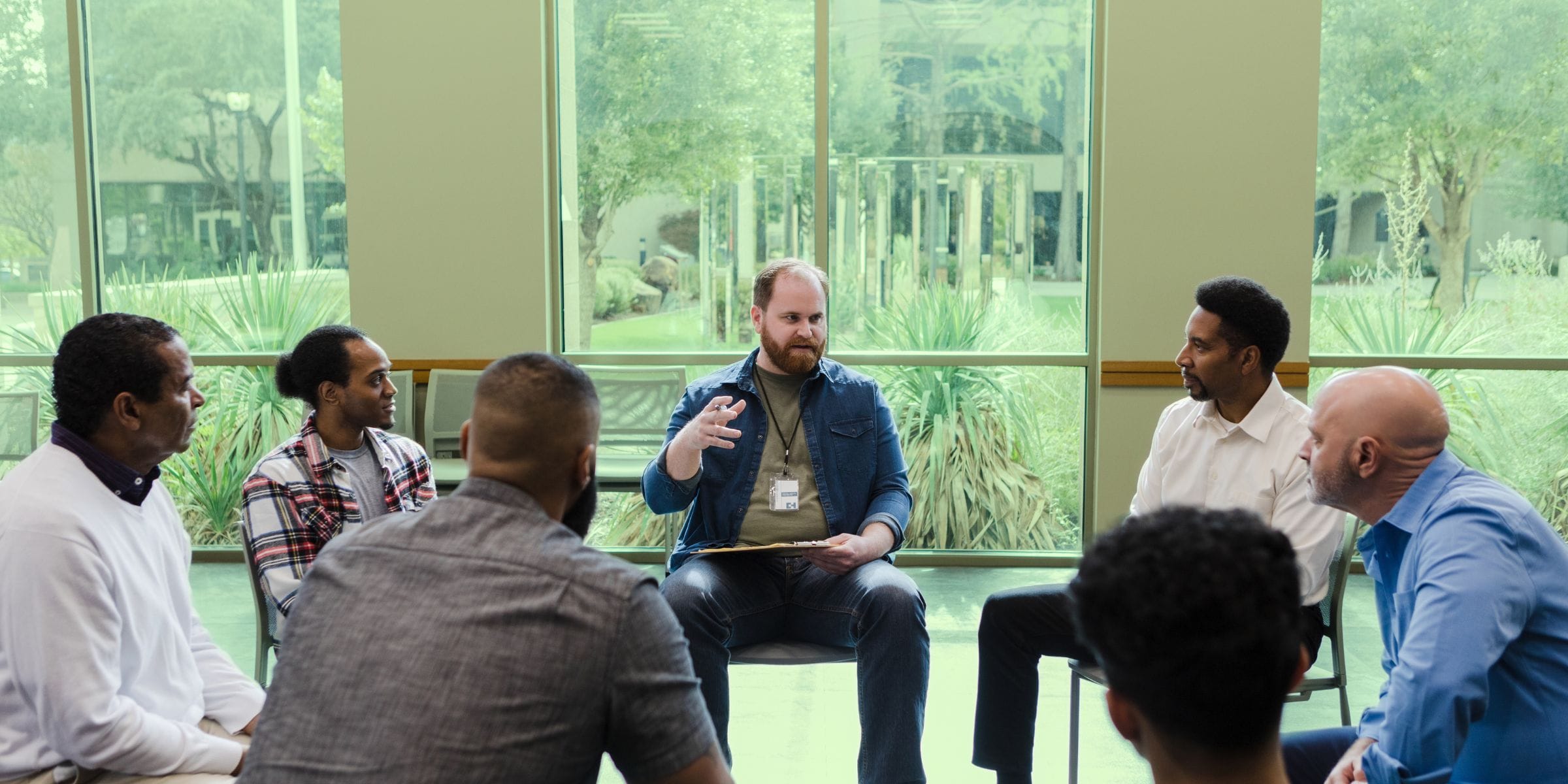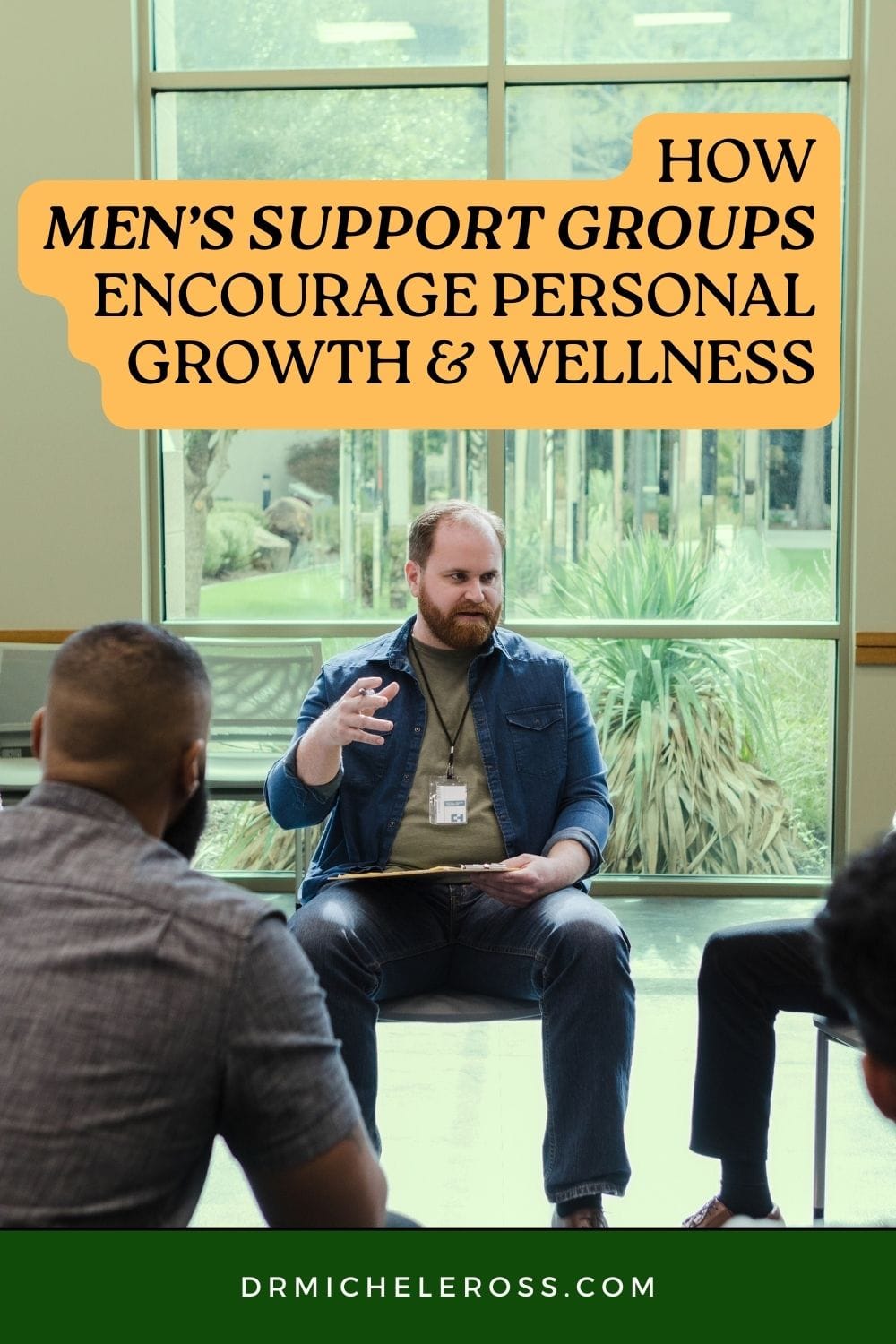
Key Takeaways
- Understand the impact of support systems on personal development.
- Learn how men’s groups foster emotional and mental wellness.
- Discover the benefits of community for individuals seeking growth.
Introduction
Community support and connection are pivotal in enhancing individual well-being in today’s fast-paced world. Masculinity has traditionally been associated with notions of stoicism and emotional suppression. However, modern masculinity increasingly embraces vulnerability and openness, primarily through the lens of men’s support forums such as Groups For Men. These groups serve as more than just social gatherings; they are platforms that nurture personal growth, emotional wellness, and a redefined understanding of masculinity.
As awareness surrounding mental and emotional health rises, men’s support groups have emerged as crucial spaces that promote self-discovery and bolster resilience. In these groups, men find camaraderie and invaluable lessons on leading more fulfilling lives, navigated through shared experiences and collective wisdom.
The Role of Men’s Support Groups in Modern Society
Men’s support groups aren’t a new concept, yet their relevance and transformative power have grown significantly over recent decades. These informal assemblies focus on peer interaction and community bonding, serving as essential enclaves where men can discuss life’s challenges.
Historically, societies that emphasized communal living often saw less stress among individuals. Today, such groups echo this ancient wisdom by providing avenues for expression, connection, and personal evolution.
Emotional Wellness and Healthy Masculinity
One of the standout benefits of attending men’s support groups is fostering healthier emotional expression and challenging long-held beliefs about masculinity. Stereotypes about men being emotionally reserved are gradually fading as these groups encourage participants to share and discuss their emotions openly.
Embracing this vulnerability has been shown to lower levels of anxiety and depression, opening doors to healthier lifestyles. These groups reshape masculinity perceptions by offering emotional intelligence workshops and discussion forums and proving that strength and vulnerability coexist.
Encouraging Professional and Personal Development
The positive impact of peer mentorship within men’s support groups on professional and personal arenas is profound. In a world that increasingly values holistic growth, these groups have become incubators for ambition and motivation. Members often converge to discuss aspirations, exchange feedback, and pave paths toward mutual success.
Take the example of John, a marketing manager who attributes his career progression and personal fulfillment to the insights and encouragement from a support group. This story is far from unique. Many men find motivation and direction inspired by these settings’ collective wisdom and diverse perspectives.
Building Resilience Through Community
Community involvement significantly bolsters resilience, defined as the ability to bounce back from adversity. Men’s support groups provide a tight-knit community, enhancing self-esteem and fostering a sense of purpose.
According to studies by respected organizations, individuals integrated into supportive groups are less likely to suffer from feelings of isolation or lack of purpose. Such groups act as powerful buffers against life’s stressors, facilitating personal growth and psychological fortitude through shared experiences and encouraging discussions.
Breaking the Stigma: Mental Health Conversations
Breaking the stigma surrounding mental health remains a central challenge. Men’s support groups address this by cultivating open dialogue that demystifies mental health issues. These environments foster trust and empathy, encouraging participants to share personal stories that normalize discussions about mental health.
By providing a safe space for these conversations, support groups play a pivotal role in destigmatizing mental health issues and encouraging men to seek help when necessary, thereby contributing to an overall increase in well-being.
Practical Steps for Joining or Starting a Men’s Support Group
Joining a men’s support group has never been easier for those eager to benefit from such a nurturing environment. Many options are available both locally and through virtual platforms. Online forums and meetups are excellent starting points to find a group tailored to specific interests or issues.
For those looking to create a personal group, beginning with a clear purpose and focusing on shared interests helps attract like-minded individuals. This approach combines varied experiences and strengthens the support network, ensuring a rich tapestry of shared knowledge and learning opportunities.
The Future of Men’s Support Groups
The trend of men’s support groups is increasing, emphasizing fostering connections for future generations. Digital platforms have transformed these groups, making them accessible to a broader audience. Whether through video conferences or social media forums, digital platforms have allowed men worldwide to benefit from these support networks. This growing trend holds promise for healthier lifestyles, where support is only a click away, breaking barriers of distance and time.
Conclusion
Men’s support groups are transforming the landscape of personal growth and wellness. By challenging traditional masculinity, promoting open dialogue, and fostering mentorship, they create an environment ripe for self-discovery and emotional health. Anyone considering the invaluable influence of community on individual growth would find these groups a worthwhile endeavor. Studies on social connection and health affirm that the sense of belonging and community significantly enhances well-being and motivation, promising a brighter future for those willing to engage and grow within these supportive collectives.
For those who see the value in such networks and are motivated to explore life’s possibilities, men’s support groups offer a profound journey of growth and connection. They reinforce the idea that progress is often a shared journey, not a solitary path.
Pin This Post





